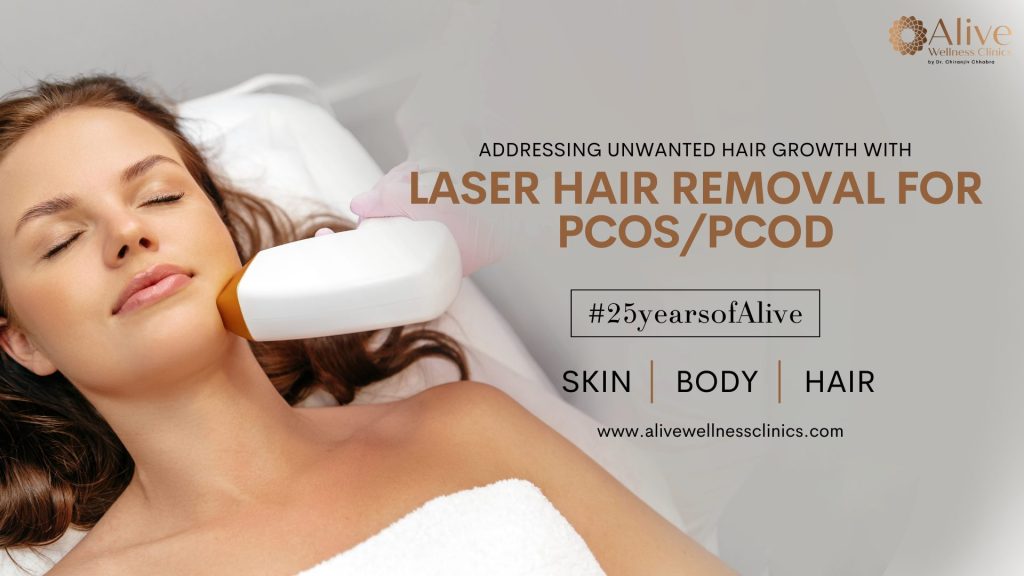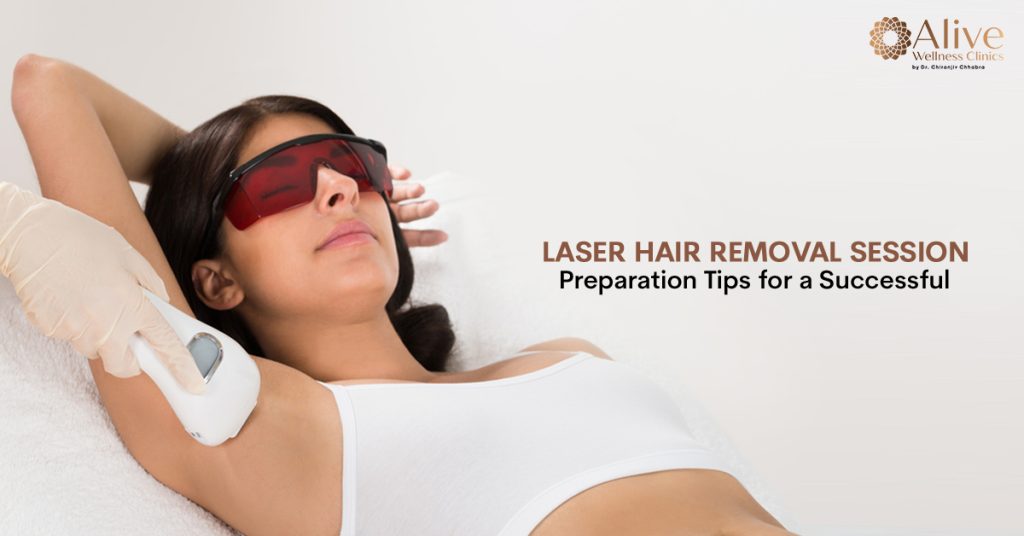Irritation, frustration, and maybe even a hidden razor blade under the sink—do these sound familiar if you have PCOS?
Unwanted hair growth can be a real thorn in your side.
There’s good news! Laser hair removal can be a supportive solution.
It won’t solve the hormonal mystery behind PCOS/PCOD, but it can zap away those pesky hairs, leaving you with smoother skin and a newfound confidence.
Read this article to explore how laser hair removal for PCOS/PCOD hair growth, what results you can expect, and what to consider before taking the plunge.
Understanding PCOS & PCOD
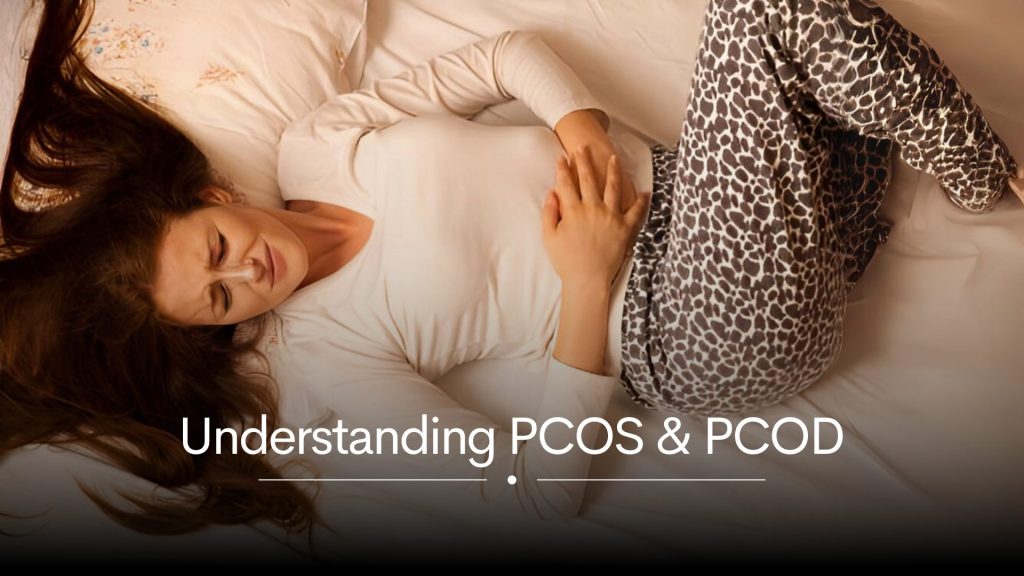
Polycystic Ovary Syndrome (PCOS) and Polycystic Ovary Disorder (PCOD) is a hormonal disorder that occurs during the reproductive years.
If you have PCOS/PCOD, your periods may be infrequent, or you might experience prolonged menstrual cycles.
Additionally, your body may produce an excess amount of androgen hormone.
PCOS is characterised by the development of numerous tiny fluid-filled sacs, known as cysts, along the outer edge of the ovaries.
These cysts contain immature eggs, called follicles, which fail to release eggs regularly.
Understanding Laser Hair Reduction
Laser hair reduction in Delhi is a method that offers a long-term reduction of hair growth by damaging or destroying hair follicles.
Typically, after six to eight sessions, one can expect a 65 to 90 per cent reduction in hair growth, with occasional maintenance sessions needed afterwards.
Laser hair removal significantly delays hair growth compared to other methods, such as waxing, threading, or bleaching.
Additionally, it transforms thick, terminal hair into finer, vellus hair, often called baby hair.
Working of Laser Hair Reduction for PCOS/PCOD
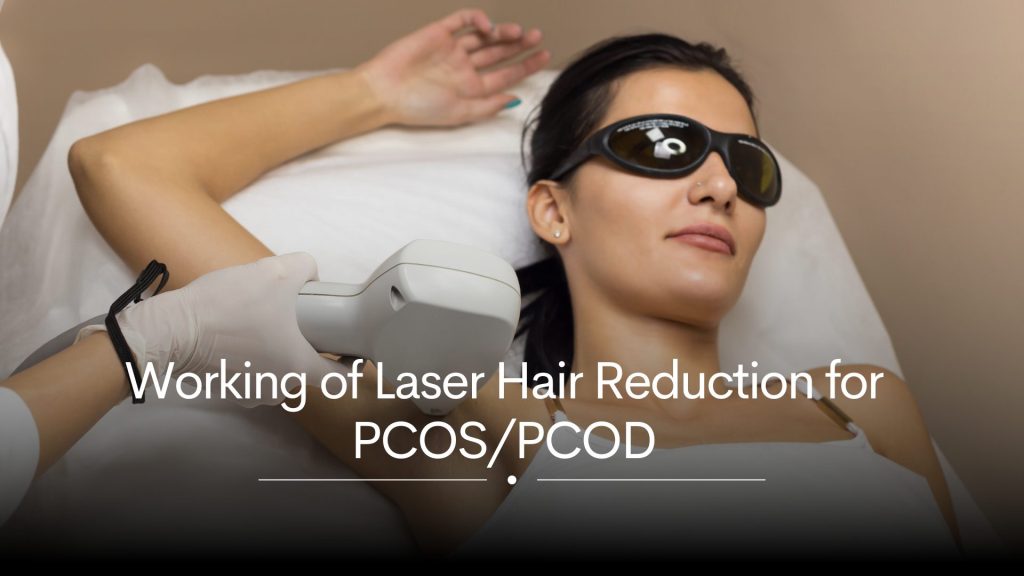
LHR is a cosmetic procedure that works by concentrated beams of light to penetrate hair follicles and turn off the cells responsible for hair growth.
The pigments of the hair absorb the laser light, generating heat that destroys the hair follicle without harming the surrounding skin.
Therefore, for women who experience PCOS/PCOD, the removal of unwanted hair growth with LHR can be an effective treatment.
The laser targets the hair follicles, making them dormant and eventually stopping hair production. This results in a long-term reduction in hair growth.
However, due to the hormonal imbalance in PCOS, hair growth may continue to be stimulated.
Consequently, women with PCOS often require more laser hair removal sessions to achieve satisfactory results. It’s also recommended that the underlying hormonal imbalance be treated for better outcomes.
Consult your gynaecologist or endocrinologist for medications to correct the hormonal imbalance.
Additionally, lifestyle changes like a balanced diet, regular exercise, and good sleep habits can improve hormonal control.
Book your consultation with Alive Wellness Clinics to get the best treatment for LHR.
Benefits
Laser hair removal treatment in Delhi offers several benefits for women with Polycystic Ovary Syndrome (PCOS), including:
Effective Reduction of Unwanted Hair
Laser hair removal can remarkably reduce unwanted hair growth on the chest, face, and other body parts, alleviating distress and boosting self-esteem and confidence.
Convenience and Comfort
It is a convenient option for removing thick, dark hair, unlike traditional methods such as shaving, waxing, and threading, which are painful.
Moreover, they require frequent sessions and can cause side effects like rough skin, razor bumps, ingrown hairs, and skin irritation.
Thinning and Skin Rejuvenation
Over time, laser hair removal thins out thick, dark hair and aids in rejuvenation, providing the added benefits of even-toned, pigment-free skin.
Laser Hair Removal Permanent for PCOS?
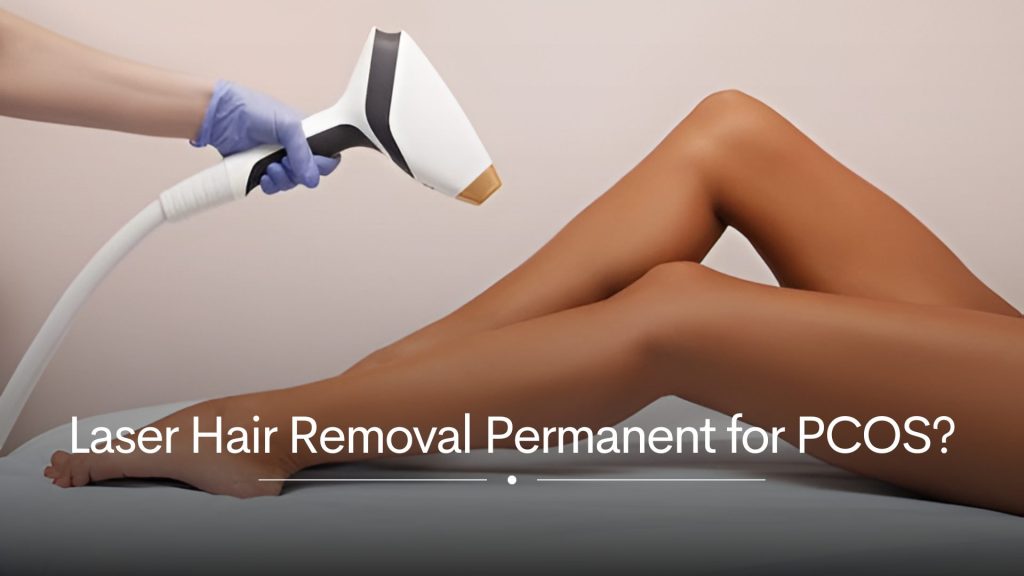
Laser hair removal is not a lifelong solution for anyone.
After completing a series of laser treatments, patients can expect long-term hair reduction, though periodic touch-ups or maintenance treatments are necessary to manage hair follicles.
Some individuals may go years before needing a touch-up, while others prefer annual maintenance treatments.
Even though you have PCOS or not, laser hair removal is a practical option for reducing unwanted hair.
For those with PCOS, more frequent maintenance treatments may be required after the initial treatment series. However, this varies from person to person.
Typically, after completing a laser hair removal series, any regrowth tends to be finer, lighter, and significantly slower than pre-treatment.
Conclusion
Laser hair removal can be a kind solution for unwanted hair growth caused by PCOS.
While it won’t address the hormonal imbalance itself, it can significantly reduce hair growth and leave you with smoother skin.
The laser targets and weakens hair follicles, but touch-up sessions may be needed due to PCOS-related hormonal activity.
Consulting a gynaecologist or endocrinologist for hormonal treatment and maintaining a healthy lifestyle can improve results.
Laser hair removal at Alive wellness Clinics in best dermatologist clinic in Delhi offers long-term hair reduction, convenience, and smoother skin for those with PCOS.

